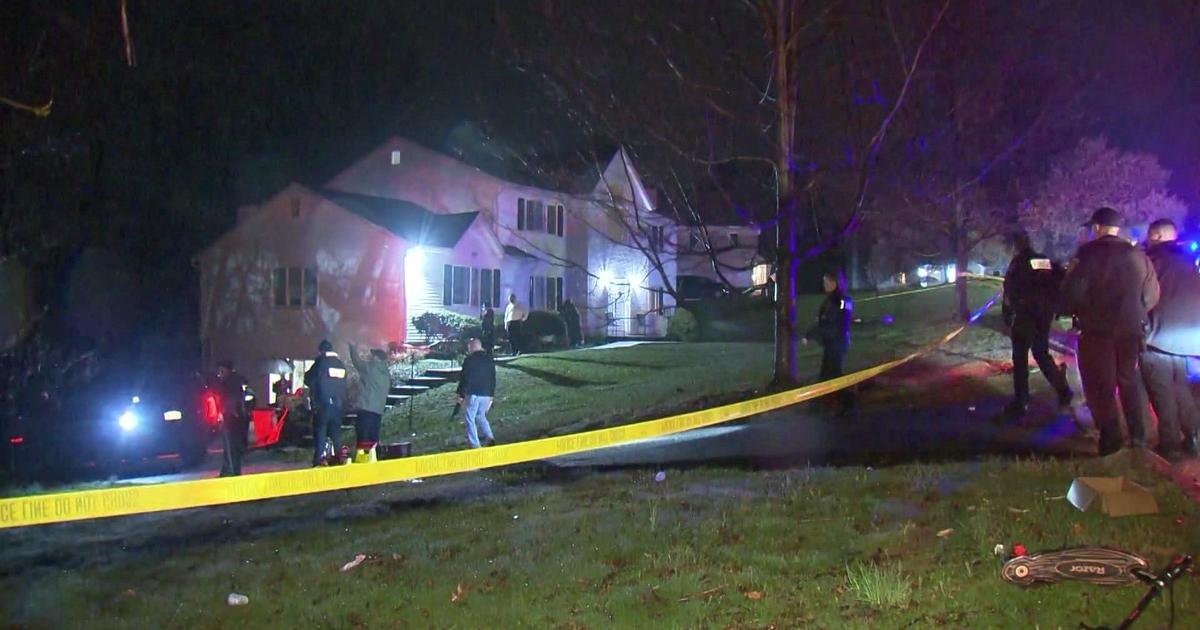Exclusive: MTA CEO Janno Lieber Says Top Priority Is 'Making A Safer Environment For Our Riders'
NEW YORK (CBSNewYork) -- The newly appointed head of the MTA has big plans to make riders feel safer, including asking cops to move people with obvious mental health problems away from the platforms.
Before and after CBS2 political reporter Marcia Kramer rode the subways with Janno Lieber, the newly confirmed CEO of the MTA, she saw NYPD cops who usually patrol above ground entering the Bowling Green station, adding an additional police presence at one of the busiest spots in the subway system.
They were also on the platforms.
"Thank you for being here. So appreciative. I'm so glad to see you guys," Lieber told them.
That's not all. At the City Hall stop, there were strategic response group cops with a long guns and a cop with a patrol dog.
Lieber seemed genuinely pleased that his demand for more cops is being met, insisting it wasn't because CBS2 was with him.
"We didn't plan it. This is what we're seeing, even in the short time since the mayor came into office," he said.
He was referring to plans announced three weeks ago by the mayor and governor to use NYPD precinct cops to make regular visits to the subways in their sector.
"This is the way it oughta work, right?" Lieber said.
To be fair, Lieber and Kramer rode the subway at the beginning of the evening rush. Wednesday, during the much quieter mid-morning commute, it seemed like were fewer cops.
But when Lieber talked with Kramer about his priorities, he said convincing New Yorkers it's safe to ride the trains is his first concern.
It's a tall order after 40-year-old Upper West Side business woman Michelle Go was pushed to her death by an emotionally disturbed person, who was experiencing homelessness.
Lieber's new plan is to have cops move people experiencing homelessness and the emotionally disturbed away from the platforms.
"They are scaring our riders. They are having a disproportionate impact on not just riders' sense of vulnerability, but on the conditions in the system," Lieber said.
"How do you get them out of the subways?" Kramer asked.
"Our rules of conduct in the subway system say that if you're engaged in erratic behavior, if you're doing things that impact on other people ... you may not belong there," Lieber said.
Kramer asked the MTA boss if he would consider embarking on a program like one in operation by social service agencies and the Philadelphia transit system called "Hub of Hope." It provides food, showers and laundry services for people experiencing homelessness, which keeps them off the platforms.
"We're open to any idea as long as the first priority is making a safer environment for our riders," Lieber said.
Although there is a concerted effort to put more cops in the system, it may take a while for the perception of safety to change.
"I wouldn't be riding the subways on a daily basis if I didn't have to. It's very dangerous," one rider said.
"Scared, watching my back, not feeling safe at all," another rider said.
Lieber is full of plans for improving the system. He's embarking on a pilot program to test new subways. One is called Open Gangways. Instead of individual cars, there will be one long compartment.
He also wants to go full speed ahead on congestion pricing, which is still a year or two away. The environmental impact study has to be completed, and it will take six to nine months to actually build out the system.



